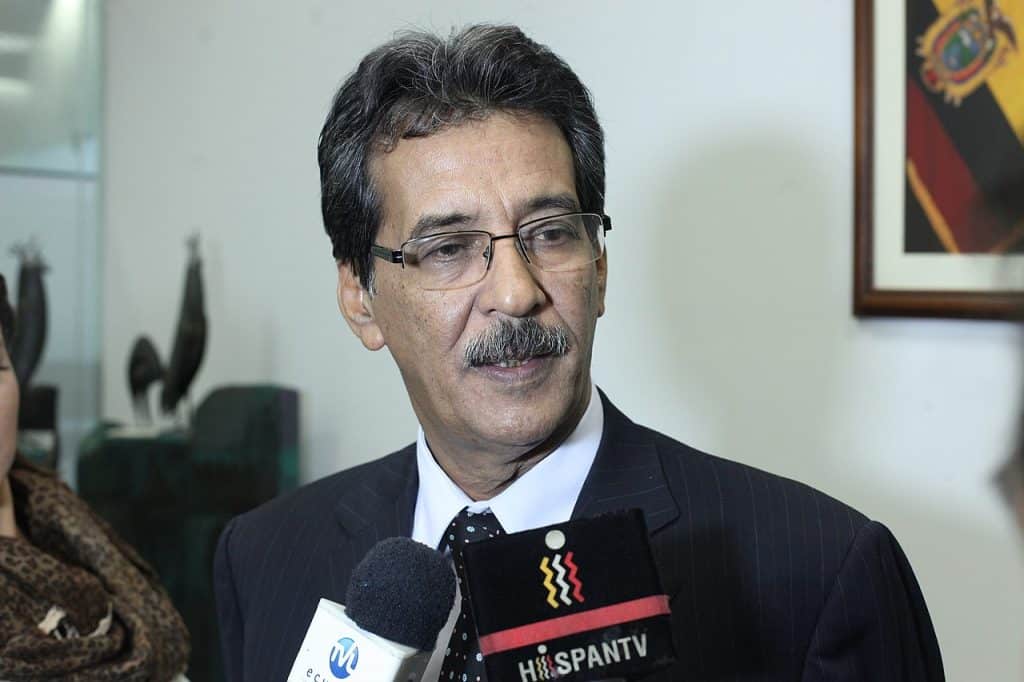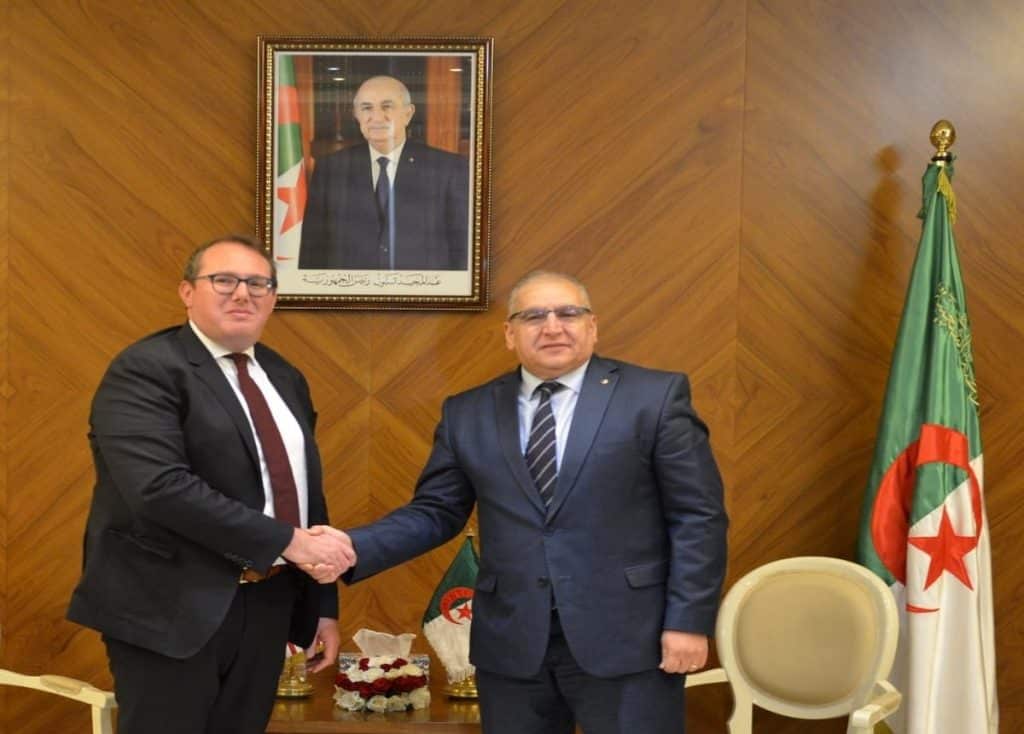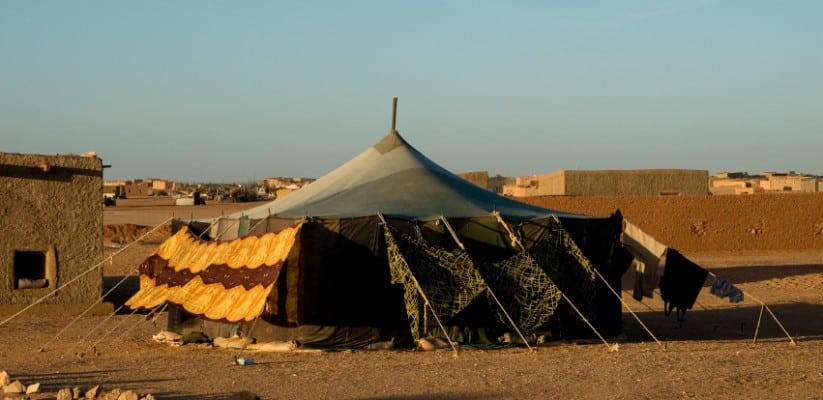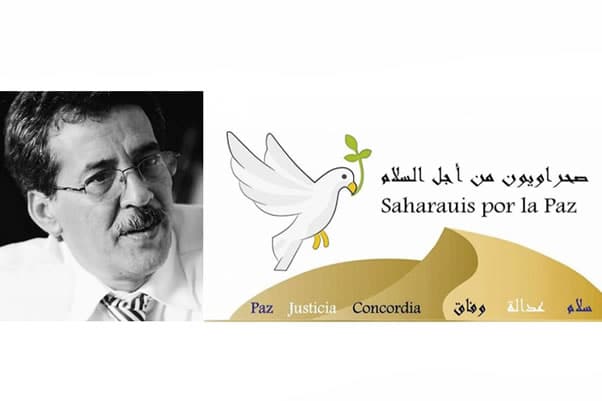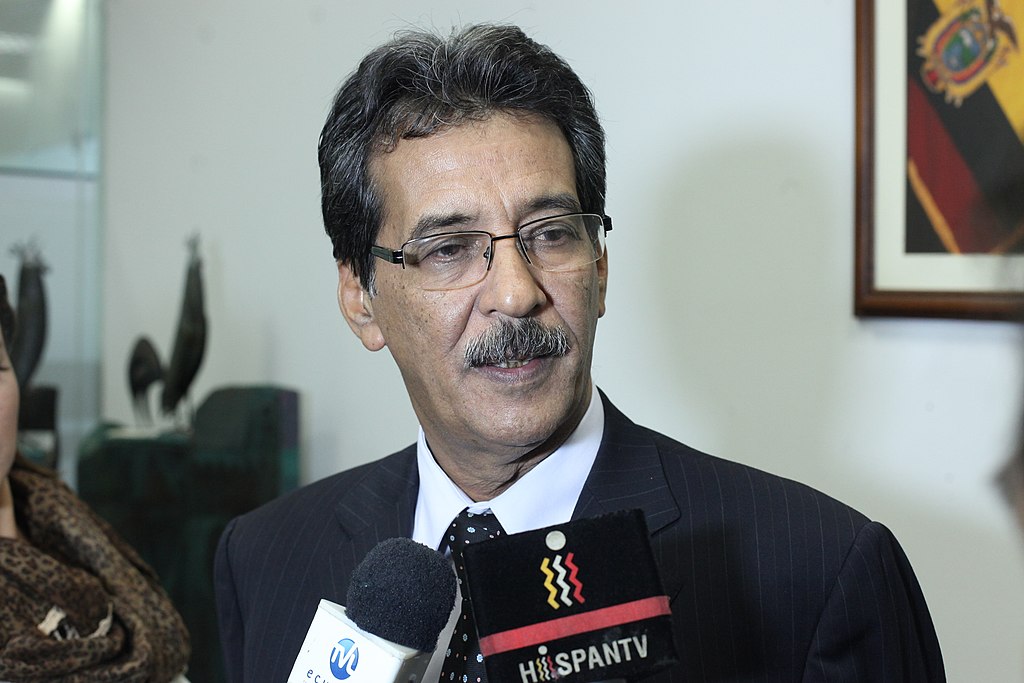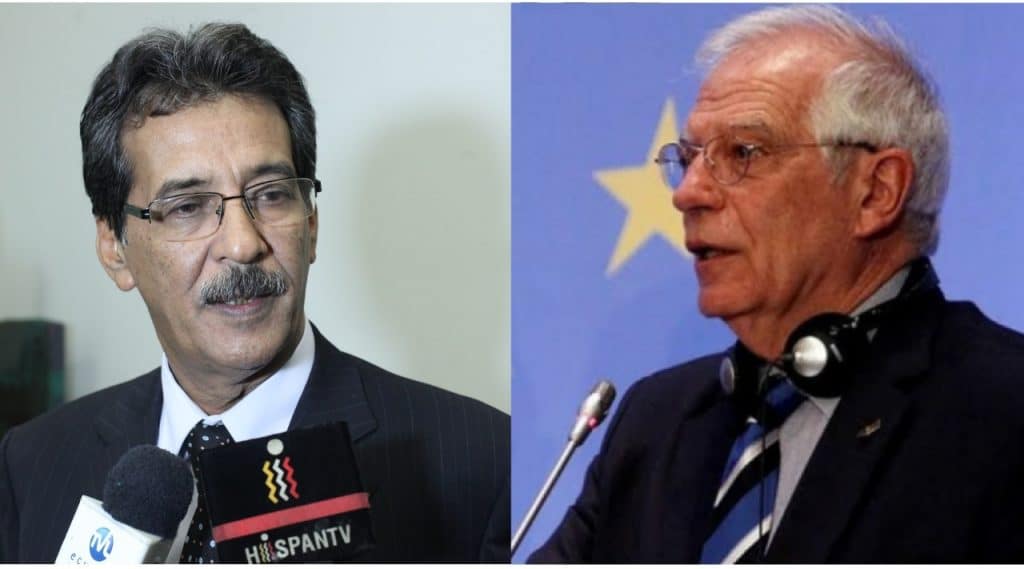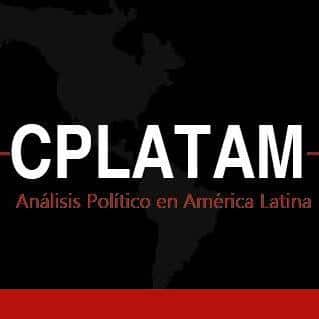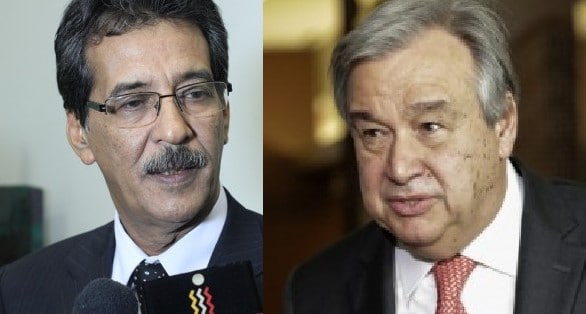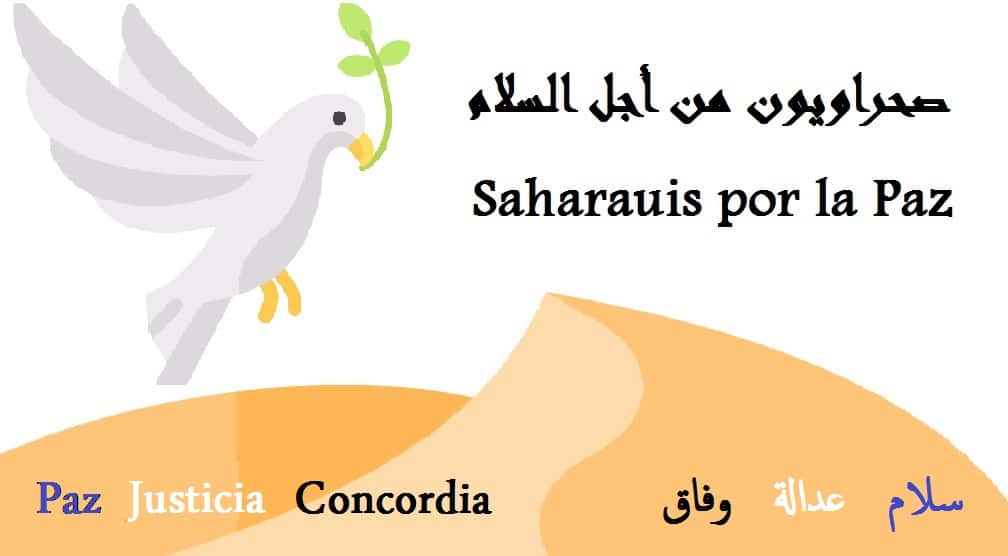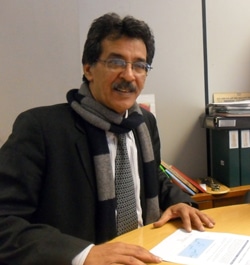In mid-January, Polisario is preparing to hold its sixteenth congress, no less than fifty years since its founding in the 1970s. One can imagine the outcome in advance, which is repeated every three or four years with the same script and staging.
A congress composed of delegates, mostly soldiers and women, previously selected through documents and resolutions prefabricated months in advance by the Preparatory Committee, made up of high-ranking officials and members of the political leadership. The re-election of the latter at the Congress will not bring any major surprises either, given the imposition of tribal quotas that is usually projected in the final ballot. In short, everything is calculated in North Korean style.
The presence and participation in the opening ceremony of foreign guests, mostly from solidarity groups close to the Spanish far left, as well as from their peripheral nationalist or pro-independence tendencies, is part of the foreseen scenario. They are fewer and fewer in number and representative, but very ostentatious. They will all parade on the speakers’ rostrum to give the event a supposedly international dimension and show that the stalled “liberation process” accumulates growing universal support.
Despite the importance and gravity of the events of the last two years, the debate and speeches will focus, as always, on the “achievements of the revolution”, highlighting the presidential trips to some African capitals, even if only to inspect donated land or for a mere act of presence as a “guest of stone” at a particular conference that in no case will produce any results for the cause, beyond souvenir “selfies”.
No one will question the outgoing and incoming political leadership, which is often the same, for the clumsy decision to break the ceasefire and its disastrous consequences on the ground. The fact that the so-called “liberated territory” no longer exists and that dozens of young people driven to suicide are killed daily by Moroccan drones will be overlooked. Nor will there be any talk of the insecurity and deteriorating living conditions inside the camps or the frustration of the young people who live there, let alone the diplomatic setbacks or the failure of the umpteenth UN Special Envoy. The script does not provide for this.
Polisario, founded by a group of immature youths born and raised in the impoverished and isolated Moroccan town of Tantan, has been frozen in time. The protagonists, sons of former members of the liberation army created by Morocco to expel Spanish and French colonialism from the region, took their first steps, wishing to continue their progenitors’ exploits. However, the process went awry when chance led the group’s leader, El Uali, to encounter the spies and messengers of the newly inaugurated leader of the Libyan revolution, Colonel Gaddafi. The timing could not have been more propitious. The Cold War and anti-colonial struggles in Africa were raging, and in Spain the regime was in full decline once the late Franco regime had entered.
From the first contacts in Nouakchott and Tripoli, recently recounted by the former Libyan spy Al Gachat, the Tantan group was seduced by the Colonel’s revolutionary ideas and “dollars”, embracing without hesitation his anti-imperialist and progressive project for the region. Ten days after its constitution, forced by biceps in Libya’s security agencies according to Al Gachat’s version, the Polisario, without consulting or taking into account the opinion of the territory’s indigenous Saharawis, decided to go to war with the Spanish, thus putting an end to the decolonisation process timidly opened by Madrid in Western Sahara.
As proof of their loyalty to Gaddafi’s pan-Arab project and his “Third Universal Theory”, the Polisario leaders did not hesitate to use the image, the flag and the method of the Palestinian fedayeen. They also implemented in the refugee camps, improvised in the vicinity of Tindouf, the system of grassroots and general committees and congresses drawn from the Libyan model. The aim was to found a second “Yamahiriya” in the Sahara, as part of an overall plan to overturn the regimes in the region considered to be capitalist and reactionary. The then Secretary General of the Polisario declared publicly in one of his speeches that the territory of Saguia El Hamra and Rio de Oro, i.e. the Spanish colony, “will not be free until the reactionary regimes in Morocco, Tunisia and Mauritania are overthrown”.
Since then, Polisario, as a political organisation, has been trapped in a time warp. After being abandoned by its main sponsor, and relying exclusively on the Algeria of the FLN, the movement was unable to move forward in its liberation process, limiting itself to managing the refugee camps of Tindouf, in the inhospitable and isolated desert of southern Algeria. There it remained in limbo, sheltered from the storms and winds of change blowing from the four corners of the world. He did not even notice the exemplary transformations in the host country, where the FLN was no longer the only party. Over the years, the leadership of the old movement has held on thanks to the political model inherited from Gaddafi, a totalitarian system imposed and governed by patterns of indoctrination and police control typical of an “Orwellian” fiction.
Political dissent is forbidden in the Polisario; questioning the political line, the thinking, and the absolute truth emanating from the leadership is not tolerated under any circumstances. The top leaders are infallible, and their actions and even misdeeds are equally beyond reproach, even if they have committed strategic political errors, aberrant moral corruption or heinous crimes. The behaviour and conduct of their leaders, no matter how perverse or despicable they may seem, will always find an available rabble to trivialise them and attribute them to the inventions and machinations of “enemy” propaganda. All of this is based on a false narrative installed by the Polisario itself for decades to the benefit of its image, and in which the recipients of this narrative live deceived and oblivious to reality. This is how half a century has passed.
The Polisario’s political leadership recently acknowledged for the first time its “black legend” by admitting to having committed human rights violations and abuses against citizens in the 1970s and 1980s. A plan, of questionable seriousness, was announced to “materially repair” the victims of its repression. Hundreds of people were held for more than a decade in the dark prison of “Rashid”, without trial, exposed to all kinds of torture, humiliation and extrajudicial executions. Most of them were Saharawis who left their jobs in Europe or Mauritanian volunteers who decided to join the struggle. No fewer than fifty succumbed to prison conditions reminiscent of the Middle Ages. Many others left with indelible physical and psychological stigmata. The surviving victims and their families demand moral reparation and political accountability rather than material compensation.
Throughout its long history, the Polisario has sown among the Sahrawi population under its control a concept of radical nationalism that borders on fascism. It is a sectarian ideology, with a strong component of intolerance and contempt for any idea or approach that does not fit in with its postulates and the discourse of its political leadership. In its philosophy, the political adversary does not exist. In his “democratic” republic there is no room for critical currents or political opponents. It divides people, even members of the same family, into “good” and “bad”, “patriots” or “traitors”, depending on their affinity to the official line and the degree of their devotion and loyalty to the real leaders, those known as the Tantan gang or what is left of it.
Even top leaders who were purged at the top were not spared from the punitive and corrective action. This is the case of Omar Hadrami and Ayoub Lehbeib, both members of the Executive Committee and founders of the movement, who were forced to leave and return to Morocco. Second-tier leaders who dared to raise their voices in protest in 1988 were also targeted. Most members of the then Polisario political bureau were brutally repressed, some imprisoned, including the current representatives in Algeria and France. Many others were humiliated in public, in a kind of “autos de fe” before inquisitorial tribunals set up for the occasion.
In the Polisario system, suspicion can hang over anyone. Boukhari Ahmed, considered the soul of Sahrawi diplomacy and its representative at the UN until his death in April 2018, was once ordered to open his personal briefcase at a formal meeting of the highest political body and in the presence of the entire leadership, in case he was hiding a microphone or other recording system on behalf of a foreign espionage service. The scene looks like something out of the film “The Incorruptibles”, about the life and methods of the legendary American mobster Al Capone. Then, after Boukhari’s death, his colleagues had enough indecency and immorality to use his image and reputation by associating his name with the organisation’s last conclave, the VXth Congress.
The system is still in place today. If anyone decides, for whatever reason, to rebel or disturb the “farm”, to turn away or simply to question the alleged rectitude, diligence and management of the leadership, he or she incurs a political heresy worse than Salman Rushdie’s. The next step is a smear campaign. The next step is a brutal defamation campaign, combining anonymous pens on social networks, with a myriad of portals created for this purpose, with “Sowt Alwatan” and its Spanish version “ECS (El Confidencial Saharaui)” being the most active. Part of the defamatory action is carried out by the so-called “shuara”, a kind of bards or jesters, whose function is to create and disseminate burlesque poetic compositions to vilify and ridicule the misguided “traitors to the cause” in the eyes of the vulgar. Friends and colleagues in office, however irrelevant, get the message and begin to distance themselves, leading to one of the worst correctives, social condemnation. Even close family members are singled out, and marriages suffer and sometimes even break up.
In short, we are faced with a sectarian and destructive ideology, which combines tribal and religious fanaticism, as well as the intolerance and political irrationality of a toxic radical nationalism. The Polisario has wasted the lives, efforts and sacrifices of the Sahrawi people, embarking on a journey to nowhere in pursuit of illusions. So far its failed project has only sown division and discord among the society, leaving a long legacy of death, orphanhood, widowhood and pain. Unable to adapt to the new times, the old movement to which many of us Saharawis have devoted ourselves body and soul has become mummified in the past, reduced to what it sadly is today, a sort of “bastard” organisation with no equal anywhere and in full decay.
Hach Ahmed Bericalla,
First Secretary of the MSP.

